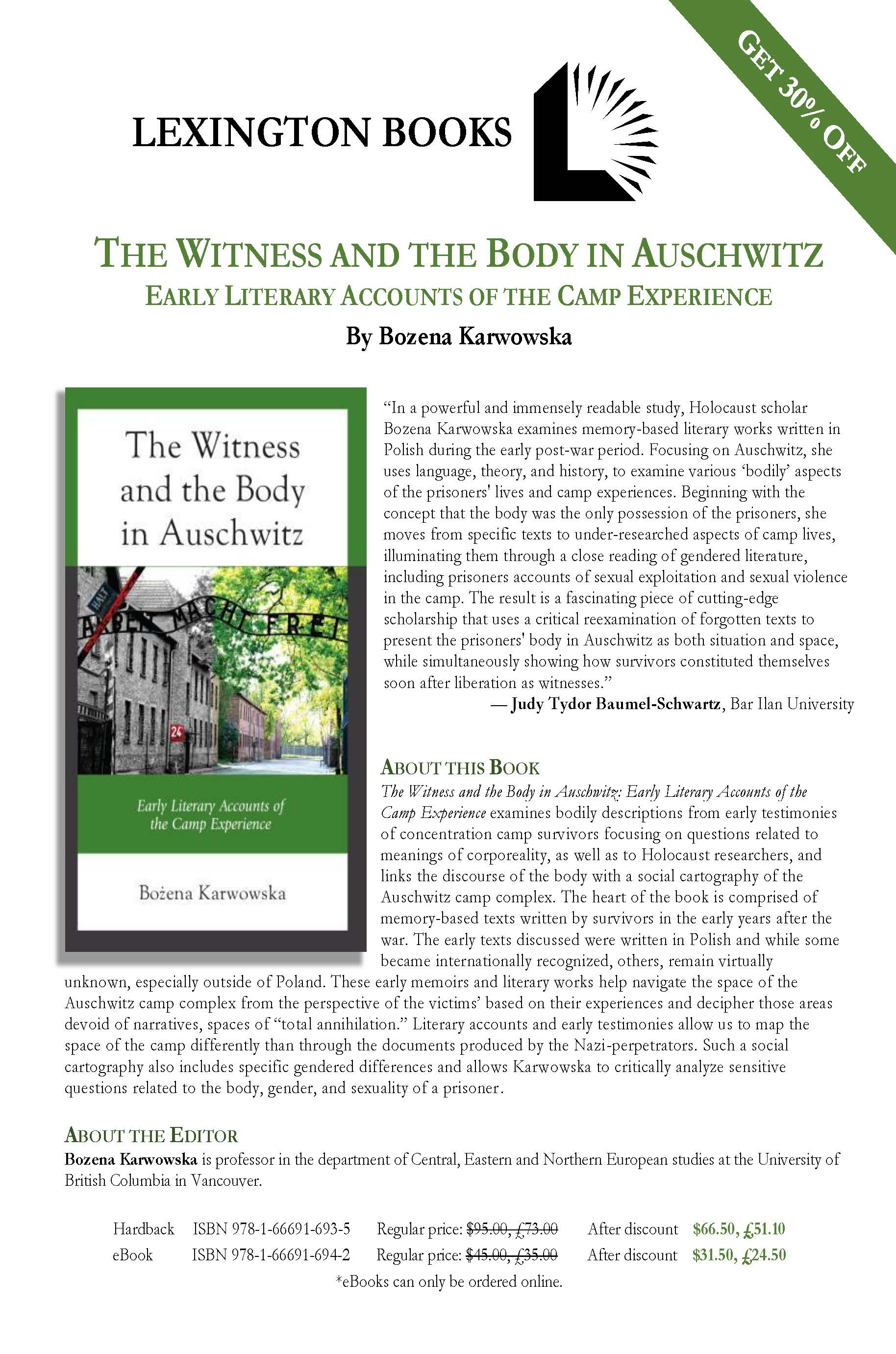
The heart of the book is comprised of memory-based texts written by survivors in the early years after the war.
Dr. Bożena Karwowska’s fifth manuscript The Witness and the Body in Auschwitz: Early Literary Accounts of the Camp Experience (Lexington, 2023) examines bodily descriptions from early testimonies of concentration camp survivors focusing on questions related to meanings of corporeality, as well as to Holocaust researchers, and links the discourse of the body with a social cartography of the Auschwitz camp complex.
About the Book:
The Witness and the Body in Auschwitz: Early Literary Accounts of the Camp Experience examines bodily descriptions from early testimonies of concentration camp survivors focusing on questions related to meanings of corporeality, as well as to Holocaust researchers, and links the discourse of the body with a social cartography of the Auschwitz camp complex. The heart of the book is comprised of memory-based texts written by survivors in the early years after the war. The early texts discussed were written in Polish and while some became internationally recognized, others, remain virtually unknown, especially outside of Poland.
These early memoirs and literary works help navigate the space of the Auschwitz camp complex from the perspective of the victims’ based on their experiences and decipher those areas devoid of narratives, spaces of “total annihilation.” Literary accounts and early testimonies allow us to map the space of the camp differently than through the documents produced by the Nazi-perpetrators. Such a social cartography also includes specific gendered differences and allows Karwowska to critically analyze sensitive questions related to the body, gender, and sexuality of a prisoner.


